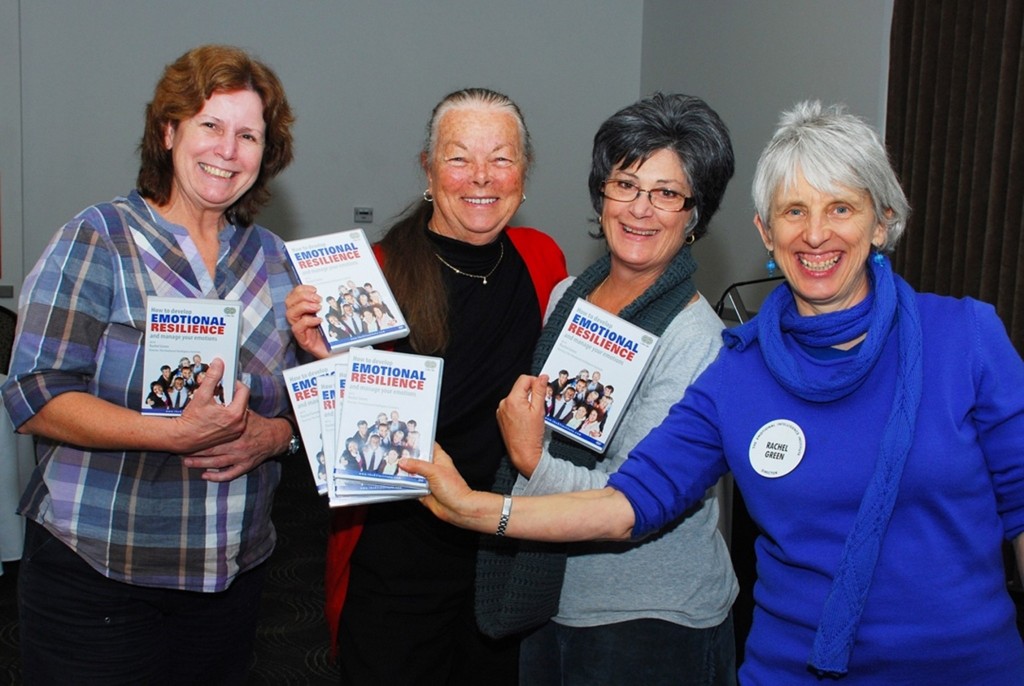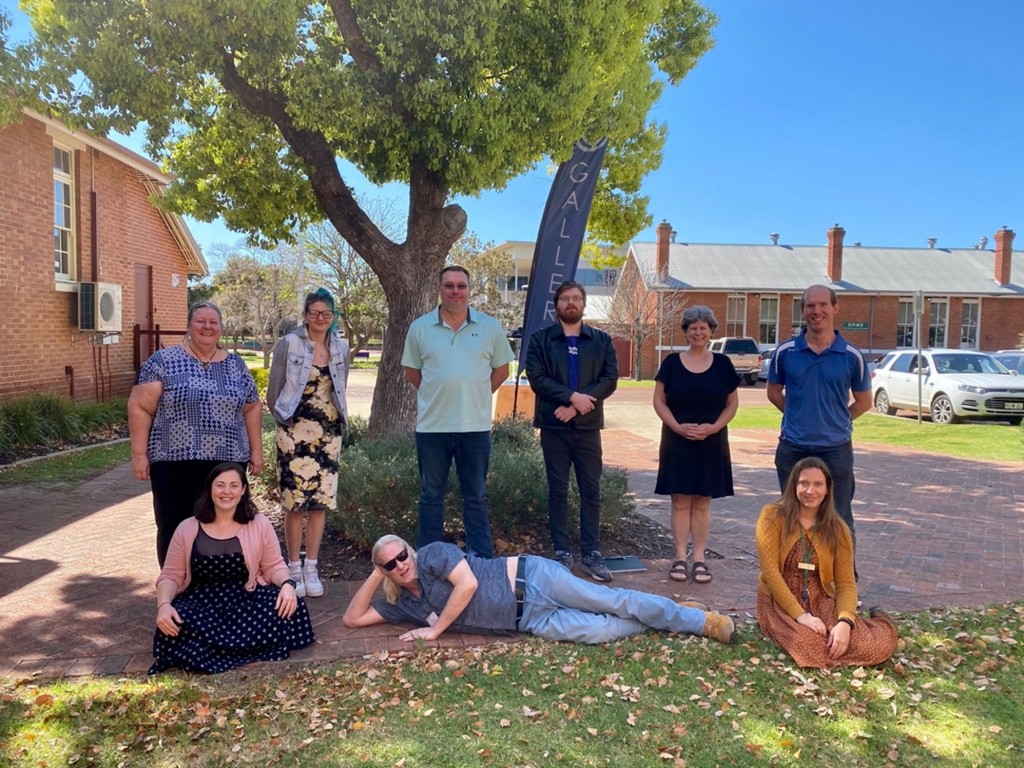
Margaret, left in the photo above, is one of our facilitators of the wellways My Recovery Program. She shares her experience of why she attended the My Recovery group, how it impacted her life, and why she felt a need to become a facilitator of the program to help other people to feel they are not alone and that there is hope for a better life.
Margaret remembers experiencing mental health issues from as young as 16 years of age.
“For 30 years of my life, I didn’t realise why I was struggling so much, and why it was so hard to live my life” she said.
Throughout her life Margaret experienced anxiety and excessive thoughts: “They were ongoing in my head all the time.”
While studying a Diploma of Health Science in her 40’s, Margaret was assigned the task to research a mental illness and while researching for this assignment she found a brochure on Obsessive Compulsive Disorder (OCD). It was this brochure that led to a major realisation.
“I found out that I have OCD. I remember reading a pamphlet about OCD and just thinking ‘Wow! I’m not the only one with this’ I continued to research OCD but I kept it to myself for about another 10 years,” Margaret said.
My Recovery
Prior to the My Recovery program, Margaret was in an unhappy relationship and together with health issues.
She said:
“My mental health really declined, and I didn’t feel safe to talk about my OCD. I felt stuck and I had difficulty moving from even one second to the next. My daughter heard about My Recovery and told me about it. I had never been to a mental health group before, but I was in a space where I knew I needed help, so I called MIFWA.”
My Recovery is a 10-week support and education group for people living with mental health issues. The structured sessions are peer-delivered by two facilitators who have experienced their own mental health issues and are on the recovery journey themselves. The program content draws on the practical wisdom of people who have a mental illness coupled with evidenced based research of mental illness and recovery.
“When I first joined the My Recovery group, I was quiet, anxious and overwhelmed.”
But this content isn’t just based on the facilitators’ own experiences. It also uses evidence-based content that has been evaluated in partnership with La Trobe University. Researchers evaluated the information, skill development and peer support against the promised outcomes and found that the program influenced significant improvements in participants.
“At the time I wasn’t sure if OCD was a mental illness or whether I had a right to say I had a mental illness” she said. “I know now.”
A MIFWA employee reassured Margaret that she could indeed benefit from the group.
“When I first joined the My Recovery group, I was quiet, anxious and overwhelmed. I remember thinking the other group participants were so much further along than me because they were out walking their dogs and seemed to be managing their lives.”
“They were approachable, made me feel safe and I never felt judged.”
“The My Recovery peer facilitators were amazing,” she said. “They were approachable, made me feel safe and I never felt judged. I didn’t know then that people are all in different spaces and go through good times and bad. Being with peers made me feel safe and realise I’m not alone.
“Labels didn’t matter – everyone in the group was connected through what was going on in our heads (and in our lives).”
“I am able to manage my life because of the My Recovery program.”
Margaret then found herself just wanting more of the My Recovery program. During the group, one of the facilitators mentioned there would be training in future to become a My Recovery Facilitator and invited participants of Margaret’s group to apply. Margaret took the opportunity to apply and was accepted.
“I completed five days of Train the Facilitator training and really enjoyed it. I wanted to continue with the My Recovery program and was so lucky to be able to take that path.
“I am able to manage my life because of the My Recovery program. Every time I facilitate a My Recovery group, I learn something new. We learn off one another. I’ve learned to ‘trust the process’ when delivering My Recovery. I love doing the groups – I’ve met real people, honest people. It’s amazing to be among peers.
“Some people say nothing in the group to start with, and slowly start to open up. That’s when I know they feel safe. At the end of each group I get a ‘wow feeling’ at how amazing the journey was for each group. Listening to people’s stories and sharing my own is how we grow together.”
“We developed a Personal Recovery Plan where I identified my triggers/stressors.”

When asked for some examples of how people can apply what they’re learning from the program, Margaret shared some of the situations from her own life.
“I can apply all of it. For me especially, it was knowing my triggers, which helps me to manage them and better manage my mental illness.
“In week 4 when I was in the group, we developed a Personal Recovery Plan where I identified my triggers/stressors and how to use internal and external strengths to manage them. I learned that one of my triggers was lack of sleep – I never got enough sleep.
“More importantly, learning from peers in the groups has taught me ways to manage.”
“I also realised sometimes it’s OK to avoid situations that caused anxiety and to remain balanced. I learned how important it is to have a healthy routine in my life. That is, enough sleep, a healthy diet, exercise, support and self-care. A lot of people living with mental illness often forget about normal healthy routines which lead to a healthy life. I always found work to be helpful, it gave me a structure, routine and helped me manage.”
In week 6, Margaret said, the program covers communication skills: “Understanding those skills but, more importantly, learning from peers in the groups has taught me ways to manage. I also learned to reach out and not to do it alone.”
MIFWA has been delivering My Recovery since 2013 and has launched new dates for 2022 where Margaret will be a co-facilitator with MIFWA facilitators Hayley and Uli who also have lived experience.
Upcoming My Recovery groups co-facilitated by Margaret
It’s 100% free!
You don’t need to be on NDIS and you don’t need a formal referral. Just call or email and we can chat to see if the group is right for you (and if it’s not, we’ll recommend the most appropriate option for you, because there’s always another option).
Wellways My Recovery
In October-December 2022, our program ran as follows:
- 10-week free face-to-face program
- Starting 10:00am – 2:00pm
- Wednesdays 5 October to 7 December 2022
- Location: Training room at MIFWA Midland
- Lunch provided
Download the flyer for our 2022 wellways My Recovery Program (ENDED)
Share

